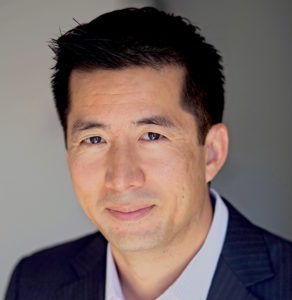Do degrees matter?: Getting clear on the different types of mental health professionals

Seeking Professional Mental Health Care: Do Degrees Matter?

Ph.D.
Psy.D.
M.D.
M.F.T.
L.C.S.W.
Let’s try to get clear on the different types of mental health professionals.
When initially seeking out help for mental health concerns, such as Anxiety or Depression, one can easily feel overwhelmed and confused by the range of training backgrounds represented. Questions that I and most colleagues in our field frequently encounter include:
- “What is the difference between a Psychologist and a Psychiatrist?”
- “What is a Psy.D.?”
- “Does it matter if I see a Psychologist, an M.F.T. (Marriage and Family Therapist), or a Social worker?”
- “How much does having a Doctoral degree versus a Masters degree influence how effective a therapist is?”
For the most part, people just generally want to know that the person they consult is qualified to help with their particular issues. The type of degree a professional holds can definitely influence this, but as we’ll explain in this brief article, it’s not the only factor to consider when deciding who to schedule an appointment with.
Let’s start with some brief answers to the questions above.
“What is the difference between a Psychologist and a Psychiatrist?”
“What is a Psy.D.?”
The most basic difference is the type of education and degree each professional holds. Psychologists earn a Ph.D., Psy.D., or Ed.D., which all involve training in research, statistics, and the scientific study of human behavior. Many Psychologists are primarily involved in teaching and/or research, as in fields such as Cognitive Psychology, Social Psychology, and Developmental Psychology, and do not treat patients. Psychologists in all of the previously mentioned fields earn a Ph.D., which is typically a more academic and research oriented degree, and can be earned in most fields of Psychology, including Clinical Psychology. By contrast, a person with a Psy.D. has completed a program that generally emphasizes clinical practice and training. The Psy.D. is exclusively a Clinical Psychology degree. Professionals with an Ed.D. have earned their psychology degrees from programs with a background in Education which can include clinical training.
In order to be a practicing clinician providing psychotherapy and/or assessment services, a state license is required. This is generally obtained by individuals with advanced degrees in Clinical or Counseling Psychology.
Psychiatrists, by contrast, earn an M.D. They attend medical school along with aspiring primary care physicians, surgeons, pediatricians, neurologists, radiologists, etc. and complete their residency in Psychiatry. In contrast to Psychologists, Psychiatrists are physicians, and thus are thoroughly trained in human anatomy, physiology, and the connection between the brain and behavior as they relate to mental illness and treatment. Their most specialized role in mental healthcare is prescribing and monitoring a patient’s medication for symptoms such as depression, anxiety, and disorders of thought such as Schizophrenia. Historically, Psychiatrists provide psychotherapy as well, though this has become less common over time.
“Does it matter if I see a Psychologist, an M.F.T. (Marriage and Family Therapist), or a Social worker?”
The difference between these types of therapists is also one that can be confusing. First of all, many different disciplines also refer to their service as “therapy,” as in Physical therapy, Occupational therapy, Speech therapy, Massage therapy, Aromatherapy, and even “Retail” Therapy (which is not a certified profession). “Psychotherapy,” sometimes called “the talking cure,” is that service which is offered by a licensed mental health clinician, and may target goals such as symptom relief, changes in behavior and relationships, and improved life satisfaction. Some use the term “counseling” to mean “psychotherapy,” though only the term psychotherapy is unique and specific to professional mental healthcare.
The distinction between the various types of Psychotherapists stem primarily from differences in education and training background. Clinical psychologists and M.F.T.s alike are educated in the various theories of human development, psychological difficulties, and therapeutic change, such as the Psychodynamic/Psychoanalytic, Cognitive-Behavioral, Humanistic/Existential, and Family Systems models. Both receive clinical training and supervision in the practice of psychotherapy. The main difference is that Clinical Psychologists earn doctoral degrees, which generally take 4 to 7 years, whereas most M.F.T.s receive a Master’s degree and are in school for 2 to 3 years. A doctoral degree in Psychology typically includes training in research methods, testing, and assessment, and most often requires completion of a dissertation or research project. M.F.T. programs often emphasize a relational or “systemic” way of understanding mental health issues that goes beyond an individual’s own psychology.
The broad discipline of Social work originated on the principle of assisting the marginalized, and encompasses roles in public policy, case management, advocacy, program development and administration, as well as mental health. My Social work colleagues describe their training as emphasizing a view of people within their environment, rather than focusing on an individual’s own thinking and behavior in isolation. Social workers receive a Masters degree (M.S.W.), though only some specialize in mental health and become Licensed clinical social workers (L.C.S.W.s) who practice psychotherapy.
In certain states, there may also be therapists with Licensed Professional Counselor (L.P.C.), or Licensed Mental Health Counselor (L.M.H.C.) degrees, which are similar to other Masters programs in counseling.
“How much does having a Doctoral degree versus a Masters degree influence how effective a therapist is?”
A successful therapy outcome can be influenced by a number of factors. You could make the case that someone who recently completed a 6-7 year Doctorate in Psychology would be generally more qualified than someone who recently completed a 2-3 year Masters degree, just based purely on experience. At the same time, not all training programs are of the same quality, and regardless of degree, no two therapists are the same.
Other factors that significantly influence the success of therapy include:
1) Specialized training and experience – it can certainly be helpful to consult a therapist that specializes in your particular issue, unless it is more general.
2) The quality of connection you feel with the therapist as a person e.g. the sometimes intangible feeling of really being understood and liking the interaction. Especially for people who experience discrimination or microaggressions in any form, it can be essential to have relevant aspects of one’s identity be seen and affirmed by a therapist.
3) Motivation – Someone who is truly motivated to change can often benefit from the basic aspects of therapy in a way that has nothing to do with the therapist’s degree.
So, at the end of the day, experience does matter, and a recently graduated Psychologist will have had more than someone just completing their M.F.T. or M.S.W. degree. However, over the span of a person’s career, that disparity matters much less than the previously mentioned factors, and so academic degree is just one consideration to keep in mind.
We’d love to hear your experiences on these matters – whether as a client, or as a professional, and whether similar to, or contradicting the statements in this article!

Martin Hsia, Psy.D. is the Clinical Director of CBT SoCal, and specializes in helping people with OCD, Anxiety, and Insomnia in Glendale, CA.
